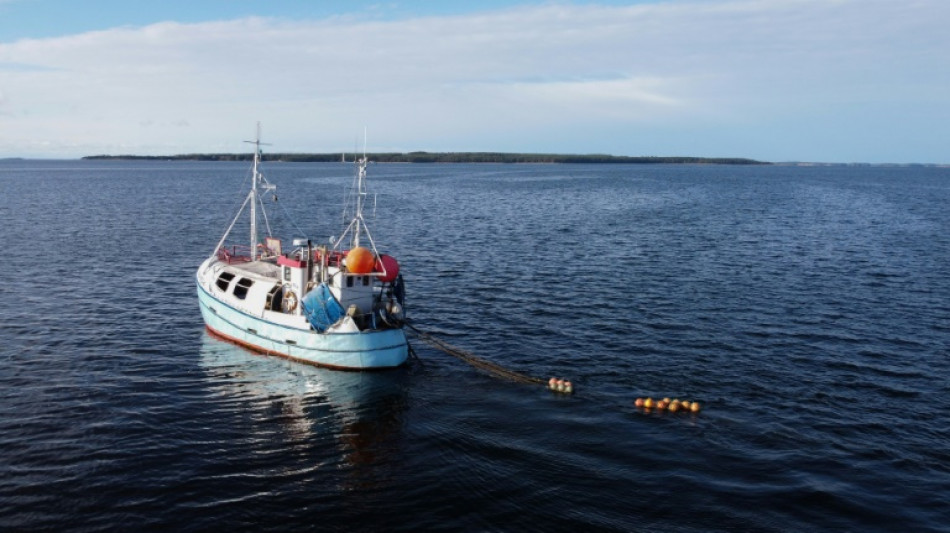
-
 Trump announces tariffs on Iran trade partners as protest toll rises
Trump announces tariffs on Iran trade partners as protest toll rises
-
Sabalenka favourite at Australian Open but faces Swiatek, US threats

-
 Gay Australian footballer Cavallo alleges former club was homophobic
Gay Australian footballer Cavallo alleges former club was homophobic
-
Trump has options on Iran, but first must define goal

-
 Paris FC's Ikone stuns PSG to knock out former club from French Cup
Paris FC's Ikone stuns PSG to knock out former club from French Cup
-
Australia's ambassador to US leaving post, marked by Trump rift

-
 Slot angered by 'weird' Szoboszlai error in Liverpool FA Cup win
Slot angered by 'weird' Szoboszlai error in Liverpool FA Cup win
-
Szoboszlai plays hero and villain in Liverpool's FA Cup win

-
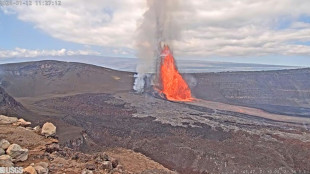 Hawaii's Kilauea volcano puts on spectacular lava display
Hawaii's Kilauea volcano puts on spectacular lava display
-
US stocks at records despite early losses on Fed independence angst

-
 Koepka rejoins PGA Tour under new rules for LIV players
Koepka rejoins PGA Tour under new rules for LIV players
-
Ex-France, Liverpool defender Sakho announces retirement

-
 Jerome Powell: The careful Fed chair standing firm against Trump
Jerome Powell: The careful Fed chair standing firm against Trump
-
France scrum-half Le Garrec likely to miss start of Six Nations

-
 AI helps fuel new era of medical self-testing
AI helps fuel new era of medical self-testing
-
Leaders of Japan and South Korea meet as China flexes muscles

-
 Trump sets meeting with Venezuelan opposition leader, Caracas under pressure
Trump sets meeting with Venezuelan opposition leader, Caracas under pressure
-
Australia captain Alyssa Healy to retire from cricket

-
 US 'screwed' if Supreme Court rules against tariffs: Trump
US 'screwed' if Supreme Court rules against tariffs: Trump
-
NATO, Greenland vow to boost Arctic security after Trump threats

-
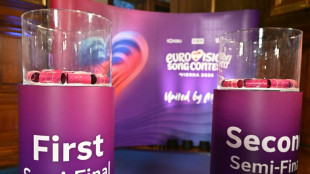 Israel to take part in first Eurovision semi-final on May 12
Israel to take part in first Eurovision semi-final on May 12
-
How Alonso's dream Real Madrid return crumbled so quickly

-
 Ex-Fed chiefs, lawmakers slam US probe into Jerome Powell
Ex-Fed chiefs, lawmakers slam US probe into Jerome Powell
-
Former Panama leader on trial over mega Latin America corruption scandal

-
 Trump keeping Iran air strikes on the table: White House
Trump keeping Iran air strikes on the table: White House
-
Paramount sues in hostile bid to buy Warner Bros Discover

-
 Ugandan opposition leader Bobi Wine warns of protests if polls rigged
Ugandan opposition leader Bobi Wine warns of protests if polls rigged
-
Airbus delivers more planes in 2025

-
 Alonso leaves Real Madrid, Arbeloa appointed as coach
Alonso leaves Real Madrid, Arbeloa appointed as coach
-
UK pays 'substantial' compensation to Guantanamo inmate: lawyer

-
 Iran protest toll mounts as government stages mass rallies
Iran protest toll mounts as government stages mass rallies
-
Gold hits record high, dollar slides as US targets Fed

-
 Cuba denies being in talks with Trump on potential deal
Cuba denies being in talks with Trump on potential deal
-
Scientists reveal what drives homosexual behaviour in primates

-
 Venezuela releases more political prisoners as pressure builds
Venezuela releases more political prisoners as pressure builds
-
15,000 NY nurses stage largest-ever strike over conditions

-
 Rosenior plots long Chelsea stay as Arsenal loom
Rosenior plots long Chelsea stay as Arsenal loom
-
Zuckerberg names banker, ex-Trump advisor as Meta president

-
 Reza Pahlavi: Iran's ex-crown prince dreaming of homecoming
Reza Pahlavi: Iran's ex-crown prince dreaming of homecoming
-
Venezuela releases more political prisoners

-
 Kenya's NY marathon champ Albert Korir gets drug suspension
Kenya's NY marathon champ Albert Korir gets drug suspension
-
US prosecutors open probe of Fed chief, escalating Trump-Powell clash

-
 Russian captain in fiery North Sea crash faces UK trial
Russian captain in fiery North Sea crash faces UK trial
-
Carrick is frontrunner for interim Man Utd job: reports
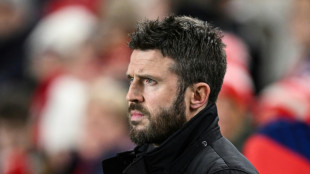
-
 Iran government stages mass rallies as alarm grows over protest toll
Iran government stages mass rallies as alarm grows over protest toll
-
Variawa leads South African charge over Dakar dunes

-
 Swiss inferno bar owner detained for three months
Swiss inferno bar owner detained for three months
-
Heathrow airport sees record high annual passenger numbers

-
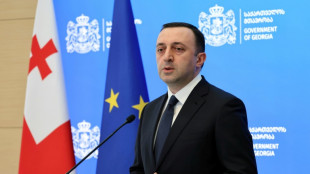 Georgia jails ex-PM for five years amid ruling party oustings
Georgia jails ex-PM for five years amid ruling party oustings
-
Kyiv buries medic killed in Russian drone strike


Reoxygenating oceans: startups lead the way in Baltic Sea
European scientists have teamed up with two startups in a pioneering experiment to tackle one of the major problems facing sea life -- the depletion of oxygen in the ocean, causing the disappearance of fish and marine biodiversity.
Ocean deoxygenation is one of the issues on the agenda at the UN COP summit on biodiversity, opening on October 21 in Columbia.
Researchers from Stockholm University in Sweden, the French industrial company Lhyfe, and a Finnish startup Flexens are working on a pilot experiment to reoxygenate the Baltic Sea by producing hydrogen at sea.
The BOxHy project is seeking an overall solution to the asphyxiation that threatens a sea bordering nine northern European countries.
The oxygen dissolved in the oceans is essential to sustaining sea life as underwater organisms have no chance of surviving without it, scientists say.
"But for more than 50 years, its concentrations have been decreasing," said Christophe Rabouille, a scientist at France's CNRS scientific research centre.
The loss of oxygen has two main causes, according to the International Union for Conservation of Nature.
The warming of oceans due to climate change is one -- warmer oceans contain less oxygen, while organisms require more oxygen in hotter waters.
The other is eutrophication, the process in which fertiliser runoff, sewage, animal waste, aqua culture and the deposition of nitrogen from burning fossil fuels creates excessive algae blooms.
When this seaweed decomposes it produces vast amounts of CO2, removing oxygen from the water.
- 'Ecological desert' -
The central Baltic, a semi-enclosed sea bordered by agricultural and industrial countries, "is one of the largest dead spots in the world... basically an ecological desert," Alf Norkko from the University of Helsinki told AFP.
The aim of BOxHy, which has received support from the UN as part of a 10-year programme on sustainable ocean development, is to study the feasibility of injecting gaseous oxygen at depth, a technique used in certain freshwater lakes in North America.
"Restoring oxygen conditions in deep waters through long-term additions would have many positive effects on the Baltic Sea ecosystem," such as expanding the habitat for cod breeding, said Jakob Walve from Stockholm University and associated with the project.
- The long game -
Flexens, the Finnish startup involved in the project, has identified three possible zones for oxygen reinjection, but much remains to be done. Oxygen has to be produced cleanly, and on site.
This is where the French startup Lhyfe comes in, specialising the separation of hydrogen and oxygen molecules from water using an electric current.
The company has developed a first-of-its kind offshore hydrogen production unit using desalinated seawater in a year-long experiment in the western French region of Le Croisic.
Till now, the oxygen produced by Lhyfe has been released into the atmosphere. But in the Baltic Sea, it would be injected into the water.
The project is still in the planning stage -- how the injection would be done, how much, and at what rate all need to be decided, as well as how to measure the subsequent impact on fauna and flora.
The second phase of BOxHy involves running a pilot project, expected to last five to six years and scheduled to start in 2025, according Szilvia Haide of Flexens who is coordinating it.
The aim of the pilot is to work out the method of injecting oxygen and to study the impact on the environment and biodiversity.
According to calculations by Matthieu Guesne, Lhyfe's CEO, around 30 offshore platforms on the Baltic would be necessary to completely reoxygenate it.
"It is not a miracle solution, it is a very long-term project," Guesne told AFP, estimating a duration of 20 to 30 years.
It will also depend on the agricultural industry and its use of fertilisers.
Q.Bulbul--SF-PST



